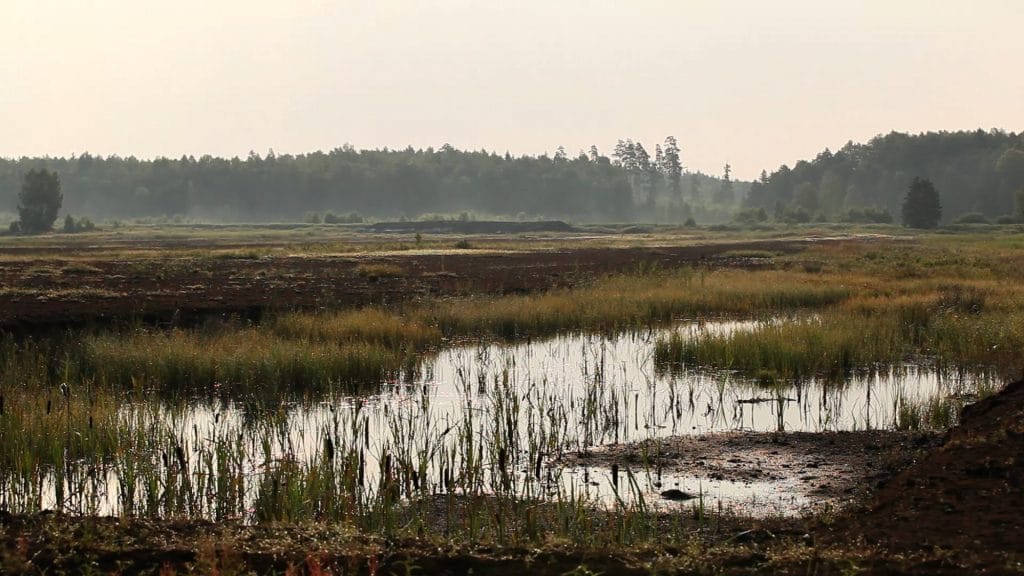International Peatland Society holds symposium
Fiftieth anniversary celebrated in Rotterdam
A symposium was held in Rotterdam on the occasion of the International Peatland Society’s 50th anniversary. The theme was ‘Wise use of peatlands, past and future’.
The International Peatland Society (IPS) is an organisation of individual, corporate and institutional members dedicated to the responsible management and wise use of peatlands and peat. Constituted in Quebec, Canada in 1968, the IPS is now registered in Finland, where the IPS Secretariat is also located. Currently the IPS has 1,437 members from 41 countries (2017). Our Managing Director Moritz Böcking was a member of its Executive Board from 2014 to 2018.
IPS President and our former colleague Gerald Schmilewski hosted the event, which featured presentations alternated with field trips. One special focus was on peat for food production. This topic is of great importance for Klasmann-Deilmann: in 2017, 43.9% of our products went to the food sector, and this proportion is growing.
In this connection, Chris Blok of Wageningen University gave a projection of population change until 2050 and the associated increase in demand for substrate constituents. In 2017, the total volume of growing media for food production was 59 million cubic metres worldwide, of which peat accounted for 40 million cubic metres. Demand for growing media is set to more than quadruple – to 244 million cubic metres – by 2050, with peat’s share of this put at 80 million cubic metres.
Bernd Hofer of engineering consultancy Hofer and Pautz gave an estimate of global peat resources and availability. The goal should be to extract peat only from sites certified to RPP (Responsibly Produced Peat) standards. This would help to leave peatlands of high conservation value in a pristine state. Bernd Hofer also addressed nature conservation measures envisaged under the RPP scheme, mentioning one of our former commercial peatfields in Šilutė. The proportion of our extraction areas certified to RPP standards is already 67%, and these account for 75.9% of all the peat we produce.
Jan Köbbing (Head of Sustainability Management) gave a talk on the carbon footprint of substrate constituents in relation to our products’ overall life cycle. All CO2 equivalents are incorporated here, right through from resource extraction to disposal or recycling, including production and transport, as well as use in horticultural businesses, in association with retailers, and by retail customers. This is the ‘cradle to grave’ approach.
The excursion programme could not include visits to natural bogs, as all peatlands in the Netherlands are currently (or used to be) under commercial use. Accordingly, the focus of these trips was on historical and present day use of peat for horticulture. With this in mind, the participants visited a Wageningen University research centre. Touring the ‘peat meadowlands’ – landscapes which were formerly peatlands – the IPS members discussed associated problems such as soil subsidence and greenhouse gas emissions, caused by decomposition of peat on the drained sites, which releases CO2 into the atmosphere.
Jan Köbbing then drew his conclusion: “For me, this symposium was an important gathering for comparing notes with industry colleagues, scientists and partners. And holding it in the Netherlands, the horticultural heart of the world, was a good choice, especially in terms of the horticultural use of peat. The event provided many points of contact and intersection with other players, including the Canadian Sphagnum Peat Moss Association (CSPMA) and Micropropagation Services Ltd., who partnered us in our Sphagnum-farming project.”
On the day before the event, a summit was held for senior executives in the peat industry, attended by Moritz Böcking. Preparations for this – and indeed for the IPS event as a whole – had been made by the Society’s Executive Board at the end of August, hosted at the Innovation Center in Geeste. The purpose of this summit was to raise awareness, among representatives of international companies and other organisations from the peat sector, concerning the importance of global peatland resources for the climate.
